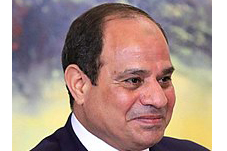
Feb 6, 2019 | News
The ICJ today expressed its grave concern over amendments to Egypt’s 2014 Constitution proposed by the House of Representatives yesterday, which could increase President el-Sisi’s control over the judiciary, extend his rule for 15 more years, expand the jurisdiction of military courts’ to prosecute civilians and broaden the military’s powers.
The amendments were proposed by one-fifth of the House of Representatives on 4 February, and reported to Parliament by its General Committee yesterday.
“The proposed amendments are a flagrant assault on the independence of the judiciary, and would expand the powers of presidency and further facilitate el-Sisi’s subordination of judicial and prosecutorial authorities,” said Said Benarbia, ICJ’s MENA Programme Director.
The amendments would grant the President authority to choose the Supreme Constitutional Court’s (SCC) President and its new members, chairs of all other judicial authorities, and the Public Prosecutor.
The President would also have authority to select the Chair and members of the Commissioners Authority, a judicial board that provides advisory opinions to judges on legal issues in cases pending before the SCC.
The General Committee’s report states the amendments are to “unify the mechanism of appointment” of these institutions.
The amendments would also establish a “High Council for Joint Judicial Affairs” chaired by the President to manage all common matters relating to the judiciary.
The amendment to Article 140 of the Constitution would extend presidential terms from four to six years.
Another “needed transitional article” would reportedly also permit President el-Sisi to run for re-election for another two terms, which, combined, could permit him to stay in office until 2034.
Article 140 of the Constitution currently imposes a two-term limit, and Article 226 prohibits amendments to “texts pertaining to the re-election of the president of the Republic…unless the amendment brings more guarantees.”
“This is an attempt to undermine constitutional safeguards aimed at protecting the right of the Egyptian people to freely choose their government and to take part in the conduct of public affairs,” said Benarbia.
“In accepting these amendments, the Parliament would abdicate its responsibility to uphold the Constitution and the rule of law,” he added.
Further amendments include the “redrafting and deepening the role of the Armed Forces” by expanding its mandate to include broad terms such as “safeguarding the constitution and democracy” and “preserving the basic elements of the state and its civilian character.”
The jurisdiction of military tribunals over civilians for “direct assault[s]” against military facilities, objects and personnel would also be expanded by the removing the requirement that the assaults be “direct.”
The amendment would make permanent a temporary constitutional provision requiring the Supreme Council of the Armed Forces—a military body—to approve the appointment of the Minister of Defense.
“The amendments effectively place the military above the law and the Constitution,” said Said Benarbia.
“They pave the way for the further entrenchment of the military in civilian affairs, which has already led to significant violations of civilian rights to participate in political life and express opinions critical of the regime,” he added.
Under international law, the jurisdiction of military courts must be limited to holding military personnel accountable for alleged violations of military discipline. No civilian should be prosecuted before military courts.
The amendments, which are still subject to parliamentary discussion and drafting by parliamentary committee, must eventually be approved in a two-thirds vote, and then by a majority in a referendum.
The ICJ expressed its concerns about the process for adoption of the 2014 Constitution, and its capacity to serve as a basis for the establishment of the rule of law in Egypt.
The ICJ made recommendations aimed at facilitating public participation in the legislative process in accordance with international standards and at ensuring constitutional provisions were consistent with international human rights law.
These concerns remain valid today.
Contact:
Said Benarbia, Director of the ICJ Middle East and North Africa Programme, t: +41-22-979-3817; e: said.benarbia(a)icj.org
Egypt-Constitution Statement-News-2019-ENG (full story with background infomation, in PDF)
Egypt-Constitution Statement-News-2019-ARA (full story in Arabic, in PDF)
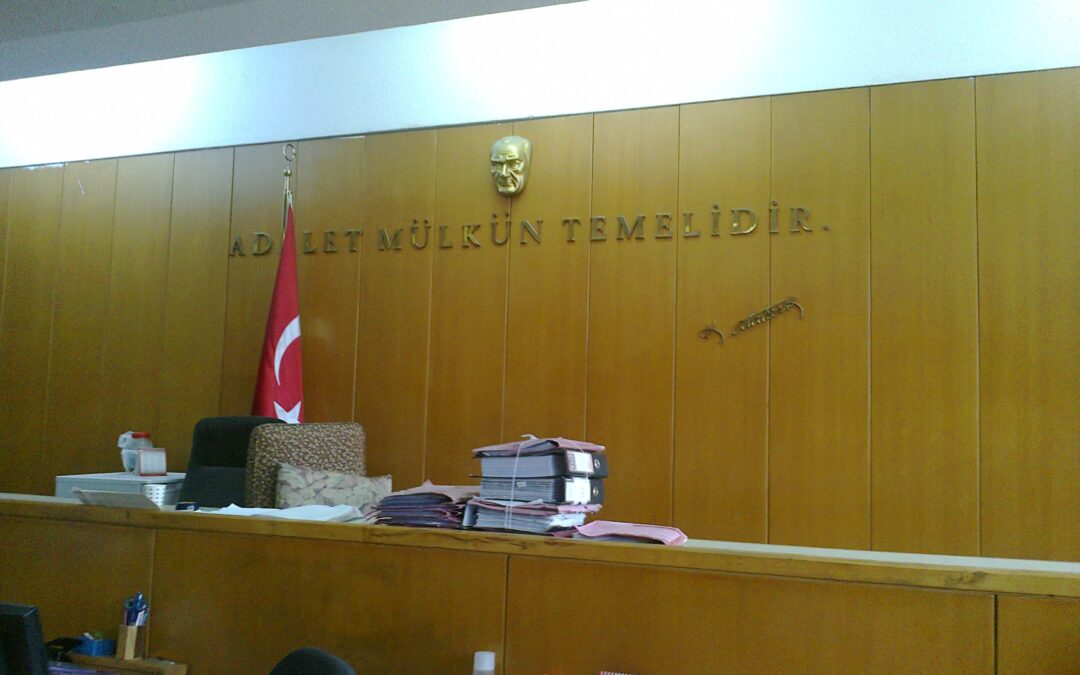
Feb 4, 2019 | News
The ICJ is concerned that the dismissal of 17 judges and prosecutors by Turkey’s Council of Judges and Prosecutors on 10 January, for alleged membership of or connections with the “Fetullahist Terrorist Organisation” (FETÖ) did not respect their right to a fair trial.
The decision by the Council of Judges and Prosecutors (CJP) is particularly problematic because it lacks any reasoning on the individual situation of each judge and prosecutor.
The ICJ points out that international law provides that judges may be dismissed only through a fair hearing before an independent authority. The lack of individual reasoning in dismissal decisions strikes at the heart of the right to a fair hearing.
Furthermore, the ICJ recalls its conclusions in the 2018 report Justice Suspended that, within the current constitutional framework, the Council of Judges and Prosecutors (CJP) is not provided with the guarantees necessary to ensure its institutional independence.
Despite the state of emergency having been lifted since last July 2018, extraordinary powers given to the Council of Judges and Prosecutors to dismiss judges and prosecutors during the State of Emergency were extended for 3 years by Law no. 7145. It is unacceptable in a State governed by the rule of law that judges and prosecutors – whatever charges may be against them – be dismissed without respect for the right to a fair procedure, in disregard of international standards.
Considering that the Council of State has not delivered a single decision about dismissed judges and prosecutors during the state of emergency, in more than two years now, it seems likely that it would take at least two years before the recent decision of the CJP is reviewed by an independent judicial authority. Until then, absent further action by the CJP, the reasons for the dismissals will not be known by the purged judges and prosecutors, or by the general public.
The ICJ calls on the CJP to revoke its order and re-examine the cases under the ordinary dismissal procedures and on the Turkish Government and Parliament to modify the constitutional rules on the CJP to ensure its full independence.
Finally, the ICJ expresses concern at the conviction of the former head of the judges’ organisation YARSAV, Mr Murat Arslan, for alleged membership of FETÖ. There are credible reports of violations of the right to a fair trial in the proceedings, including four changes of judges during the proceedings, often without reasons given and without re-examination of witnesses, significant limitations to the defence access to evidence before trial and use of witnesses with undisclosed identity. The ICJ considers that these allegations of violations of the right to a fair trial should be thoroughly re-examined in appeal before an independent court and in full respect of Mr Arslan’s fair trial rights.
Background
On 10 January, the Council of Judges and Prosecutors made use for the first time of special powers to dismiss judges and prosecutors without complying with the ordinary procedure, invoking extraordinary powers enacted by Law No 7145 of 31.07.2018. This legislation inserted into ordinary law several powers that had previously existed under the state of emergency legislation.
One of the amendments made by Law No 7145 of 31.07.2018 was to the Decree Law No 375 dated 1989. A Temporary Article (Article 35) was added to the Decree. On the basis of this article, the General Assembly of the Constitutional Court, the Presidency Councils of Court of Appeal, the Council of State, the General Assembly of the Council of Judges and Prosecutors, a Commission set up by the Ministry of National Security, and the Presidency of the Court of Audit, were each authorised to take dismissal decisions for public officials/judges and prosecutors under their mandate for three years from the date of the endorsement of the law No 7145.
Based on this amendment, on 10 January 2019 the Council of Judges and Prosecutors took its first decision (Decision No. 2019/1) by dismissing 17 judges and prosecutors (6 Public prosecutors, 3 Members of Administrative Court, 7 judges of of Tax Court) based on the allegation of membership to FETÖ.
International law and standards provide that disciplinary proceedings should be conducted by an independent authority or a court with all the guarantees of a fair trial and provide the judge with the right to challenge the decision and sanction. Disciplinary sanctions should be proportionate.
The UN Basic Principles on the independence of the judiciary set out international standards for discipline, suspension and removal of judges, including in order to ensure impartiality and independence of courts and tribunals as required by international law (including the International Covenant on Civil and Political Rights and the European Convention on Human Rights). The Basic Principles state that a:
“charge or complaint made against a judge in his/her judicial and professional capacity shall be processed expeditiously and fairly under an appropriate procedure. The judge shall have the right to a fair hearing. The examination of the matter at its initial stage shall be kept confidential, unless otherwise requested by the judge. …
The Consultative Council of European Judges (CCJE) adds that “a Head of State, Minister of Justice or any other representative of political authorities cannot take part in the disciplinary body.”
Contact
Massimo Frigo, ICJ Senior Legal Adviser for the Europe and Central Asia Programme, t: +41 22 979 3805, e: massimo.frigo(a)icj.org
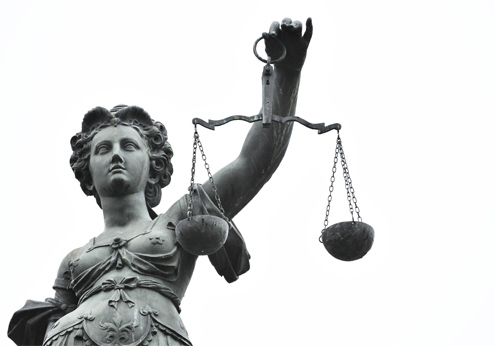
Dec 20, 2018 | News
The ICJ today called on Hungarian President Áder János not to sign the Law on the Administrative Courts but to send it back to the Parliament for further review and discussion. In particular, the law should be re-considered in light of international standards as well as the forthcoming reasoned opinion of the Venice Commission, the ICJ said.
On 12 December, the Hungarian Parliament adopted, in a highly contested process, the Law on the Administrative Courts (T/3353). The vote took place despite the fact that an opinion of the Council of Europe Venice Commission on the new law is still awaited.
The administrative courts will have significant competencies in matters of public interest concerning the action of the executive and other public institutions. They will have jurisdiction over “administrative disputes” as well as other issues transferred to their jurisdiction by law (Article 1(3)).
The ICJ is concerned at the significant powers conferred on the executive over the proposed Administrative Courts, in particular the Minister of Justice’s powers in the appointment of administrative judges (Article 72(2)) as well as the powers of the Minister of Justice and of the Parliament in regard to the annual budget of these courts. Under the new law, judges of the administrative courts would be appointed by the Minister of Justice on the advice of a newly-established National Administrative Judicial Council, with the Minister having a discretion to reject the first-ranked nominee of the Council. In a context where the independence of the Hungarian judiciary is already being eroded, this role of the executive raises significant concerns regarding the independence of the new courts.
The new law comes at a time when measures put in place by the Hungarian government since 2011 have led to a severe deterioration of the rule of law and human rights, by weakening Constitutional rights protection, limiting judicial independence, suppressing independent media, civil society and academic institutions, and imposing arbitrary laws that violate the human rights of marginalized sections of society.
The ICJ recalls that judicial independence and the separation of powers are the bedrock of the rule of law. International law, including the International Covenant on Civil and Political Rights and the European Convention on Human Rights, and other international standards such as the United Nations Basic Principles on the Independence of the Judiciary, reflect the fundamental role of an independent judiciary in protecting human rights and the rule of law.
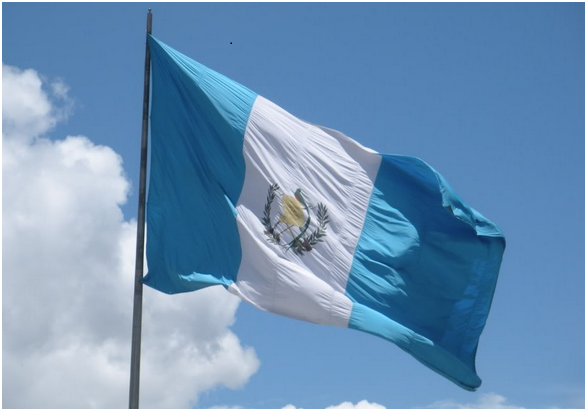
Dec 19, 2018 | News
According to information published in the Official Gazette, the government of Guatemala has ordered that eleven more officials and two family relatives from the CICIG leave the country within 72 hours from the time of issuing the notification. However, no official communication using the usual diplomatic channels has yet been sent to the CICIG.
In September 2018, the head of the CICIG, Commissioner Ivan Velasquez, was banned from re-entering the country and the government stated it would not renew the CICIG mandate after September 2019.
Ramon Cadena, the ICJ Director for Central America, stated: “The ICJ considers this new measure is designed to hinder criminal investigations against high-level government officials accused of corruption.”
The CICIG acts as a special prosecutor in serious corruption and other criminal cases and carries out investigations to identify responsible parties. The persons who have been asked to leave the country are the lawyers, police and prosecutors who are investigating important corruption cases, such as the ‘The Line’ case, in which the former President and Vice-President have been charged and other cases including those within the National Police.
Ramon Cadena continued: “It cannot escape anyone’s attention that one of the CICIG investigators who has been asked to leave the country was the person who is responsible for the corruption case involving the General Property Registry, that allegedly implicates both the son and brother of President Jimmy Morales”.
This new measure by the government seriously affects the rule of law and constitutes a flagrant violation of article 10 (4) of the agreement establishing the CICIG signed between Guatemala and the UN, which states:
“The Government agrees to provide to CICIG and its personnel the security necessary for the effective completion of CICIG’s activities throughout Guatemala, and to protect the personnel of CICIG, whether national or international, from abuse, threats, reprisals or acts of intimidations, in virtue of their status as personnel of, or their work for CICIG.”
Cadena added: “It is deeply regrettable that it is precisely the CICIG staff acting in high-impact cases who are being targeted by these measures because of their work to combat corruption and impunity. It is clear that the government is seeking to divert the CICIG from its path.”
Furthermore, according to the UN Basic Principles on the Role of Lawyers, No 16: “Governments shall ensure that lawyers: a) are able to perform all of their professional functions without intimidation, hindrance, harassment or improper interference… “ Cadena continued, “The ICJ is deeply concerned that several CICIG personnel affected by these measures are lawyers and members of the Guatemalan Bar Association. Their work is being hindered and the Guatemalan Bar Association should take action to defend its members.”
“Guatemala should comply with international human rights law and ensure that acts of corruption that impact human rights are fairly and impartially investigated and prosecuted. The presence of the CICIG contributes to ensuring that Guatemala complies with its international obligations” he added.
Cadena concluded by stating: “With these arbitrary measures, the Constitutional order of Guatemala and its democratic institutions are undermined. The Guatemalan State should ensure effective measures are taken against corruption, consistent with its international human rights and other obligations. The CICIG is one of the most successful examples of work to end corruption and impunity. The Guatemalan authorities should support the CICIG instead of hindering its work and obstructing justice.”
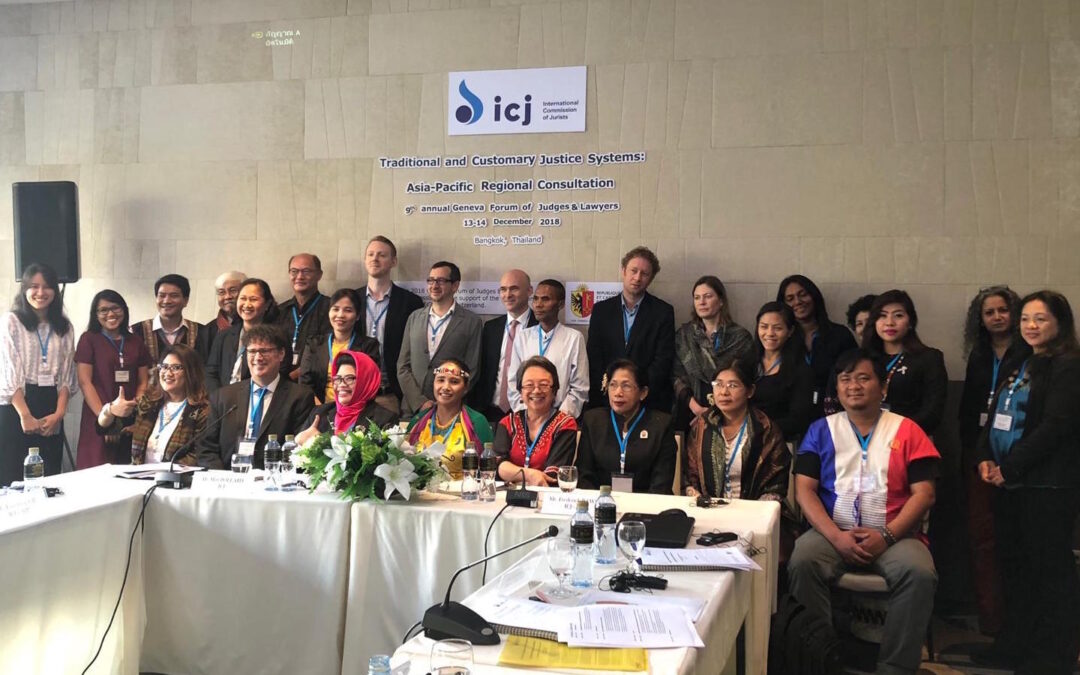
Dec 15, 2018 | Events, News
The ICJ convened the 9th annual “Geneva Forum” of Judges and Lawyers in Bangkok, Thailand, 13-14 December 2018, on the topic of indigenous and other traditional or customary justice systems in Asia.
Indigenous and other traditional or customary justice systems play a significant role in many societies around the world, in terms of access to justice for rural communities, indigenous peoples, minorities, and other marginalized populations. At the same time, such systems raise a series of questions in terms of their relationship to international fair trial and rule of law standards, and impacts on human rights including particularly those of women and children.
9th annual Geneva Forum of Judges & Lawyers, 13-14 December 2018, Bangkok, Thailand
Following discussions on these topics at the 2017 ICJ Geneva Forum (an annual global meeting of senior judges, lawyers, prosecutors and other legal and United Nations experts, convened by the ICJ with the support of the Canton and Republic of Geneva (Switzerland) and other partners), the ICJ decided that in order to better engage with customary justice systems, the Geneva Forum would be “on the road” in 2018 and 2019, convening for a regional consultation in the Asia-Pacific in 2018, and in Africa in 2019.
Additional consultations will take place in the Americas. The Forum will return to Geneva for an enlarged session in 2020 to adopt final conclusions and global guidance.
The ninth annual Geneva Forum in Bangkok brought together judges, lawyers, and others engaged with traditional justice systems in the Asia-Pacific region, and practitioners from ordinary justice systems in the region, together with UN Special Rapporteur on the rights of indigenous peoples Ms. Victoria Tauli Corpuz, as well as ICJ and UN representatives from Geneva, to discuss and develop practical recommendations, in a private small-group setting.
Participants came from a number of countries across the region, including: Cambodia, Indonesia, Malaysia, Myanmar, Pakistan, Philippines, Thailand and Timor Leste.
The potential and the risks for equal and effective access to justice and human rights
Many participants re-affirmed that traditional and customary justice systems can make an important contribution to improving access to justice for indigenous, and other rural or otherwise marginalized populations, as a result of such factors as geographic proximity, lower cost, lesser cultural or linguistic barriers, and greater trust by local communities, relative to the official justice system.
Indeed, for these and other reasons, for some marginalized and disadvantaged rural populations, traditional and customary courts may in practical terms be the only form of access they have to any kind of justice.
Furthermore, article 34 of the UN Declaration on the Rights of Indigenous Peoples affirms the right of indigenous peoples “have the right to promote, develop and maintain their institutional structures and their distinctive customs, spirituality, traditions, procedures, practices and, in the cases where they exist, juridical systems or customs, in accordance with international human rights standards”.
Furthermore, official recognition of traditional or customary courts in a country can more generally be a positive reflection of the cultural and other human rights of other ethnic, religious or linguistic minorities.
At the same time, the Forum discussions confirmed that, as with formal justice systems, certain characteristics and processes of some traditional and customary justice systems can conflict with international standards on fair trial and the administration of justice, and human rights, particularly of women and children.
Participants in the 2018 Forum discussed a variety of ways in which the relevant communities, their leaders, and decision-makers in indigenous or other traditional systems, together with government authorities, international actors, development agencies, and civil society, can cooperate and coordinate with a view to seeing both formal and traditional systems operate more consistently with international standards on human rights and the rule of law.
There was a range of views on which forms of engagement or intervention were most appropriate or effective. It was also emphasized that work should continue to build the accessibility and capacity of official justice systems to ensure that individuals seeking justice have a real choice.
The above conclusions were subject to the acknowledgement that traditional and customary justice systems take many different forms across the region, and that they exist in many different contexts.
A full report of the Forum discussions will be published by the ICJ in the first part of 2019.
Development of Guidance by the International Commission of Jurists
The ICJ’s global experience and expertise, together with research and global consultations with judges, lawyers and other relevant experts, including the 2017 Geneva Forum, the 2018 session in Bangkok, and subsequent regional consultations in Africa and the Americas, will provide a foundation for the publication by ICJ in 2020 of legal, policy and practical guidance on the role of traditional and customary justice systems in relation to access to justice, human rights and the rule of law.
The ICJ guidance will focus on the mechanisms and procedures of traditional and customary justice systems, as opposed to tackling all aspects of the substantive law.
The guidance will seek to assist all actors involved in implementation and assessment of relevant targets of Sustainable Development Goal 16 on access to justice for all and effective, accountable and inclusive institutions, as well as Goal 5 on gender equality, including: decision-makers and other participants in traditional and customary justice systems; judges, lawyers and prosecutors operating in official justice systems; other government officials; development agencies; United Nations and other inter-governmental organizations; and civil society.
The guidance will be published and disseminated through activities with ICJ’s regional programmes, and its national sections and affiliates, through a series of regional launch events and workshops, as well as at the global level at the United Nations and in other settings.
The guidance will provide the basis for ICJ strategic advocacy at the national level in the years following the conclusion of this initial phase of this work.
Background Materials
Available for download in PDF format:
A Compilation of selected international sources on traditional and customary courts, is available here.
The Final report of the 2018 Geneva Forum, on traditional and customary justice systems, is available here: Universal-Trad-Custom-Justice-GF-2018-Publications-Thematic-reports-2019-ENG
The Final report of the previous, 2017 Geneva Forum, on traditional and customary justice systems, is available here: Universal-Trad Custom Justice Gva Forum-Publications-Thematic reports-2018-ENG
For more information, please contact matt.pollard(a)icj.org.









